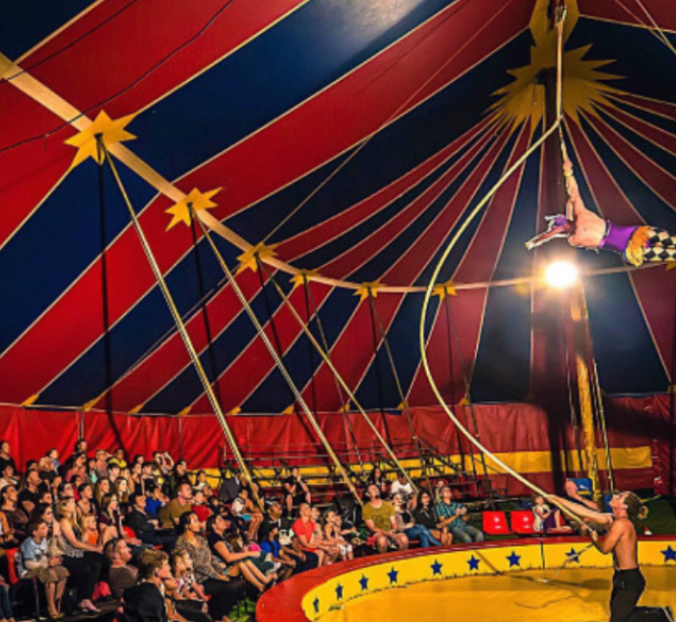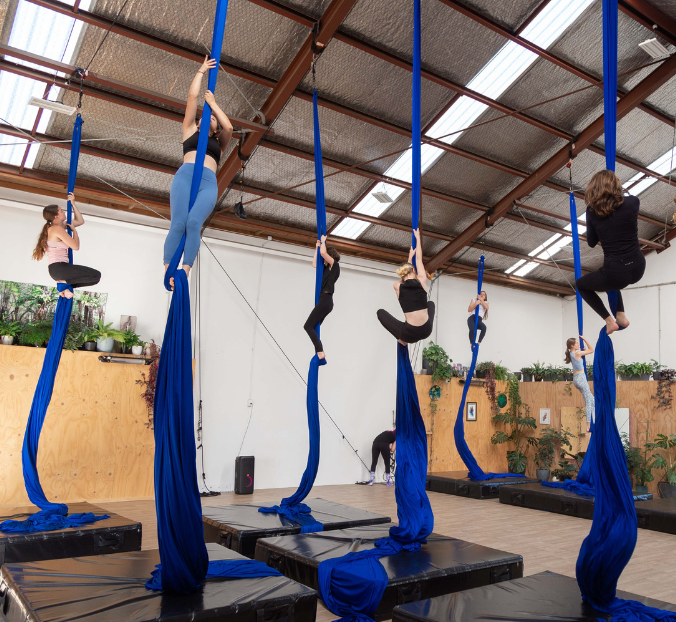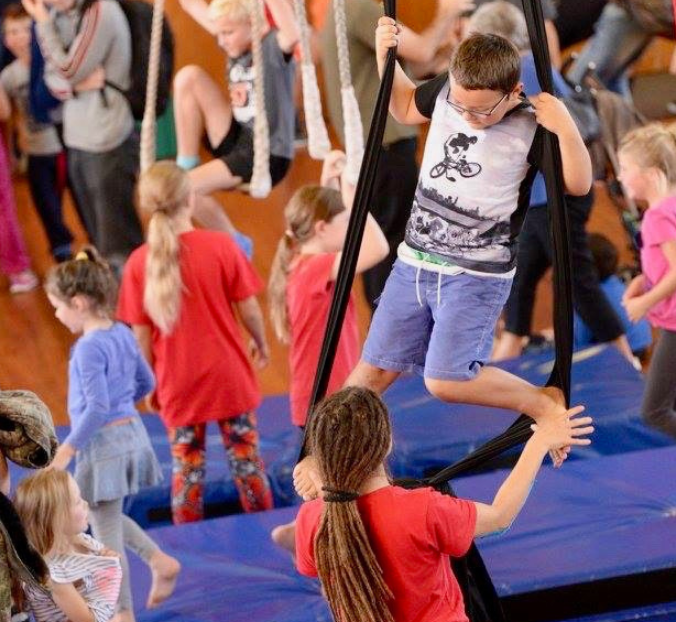Circus Sector Careers
There are many ways to follow your passion for circus into a career pathway!
Below are 14 of areas of professional circus
along with videos from Aotearoa industry leaders
Event Pathways
PRODUCTION AND MANAGEMENT
There are many ‘things’ that need to be organized to make a circus show happen: This can involve tour planning, logistics, running budgets, solving problems and communicating with a variety of venues and performers. Phew! Many circus performers eventually find themselves in this role out of intention or just because they want to tour a great show. While many performers do this themselves it also can become a full time role, with these skills the circus industry can take you all sorts of places. Here are some thoughts from Imogen Stone at ‘Colossal Productions’.
FESTIVAL PRODUCTION
Some circus performers who have the knack of organising the hectic world of festivals find themselves as a festival production manager. They are an integral part of holding together festivals that are part of the connective tissue that hold our community together
RIGGING
Being a circus entertainment rigger requires a very specialized set of skills and many circus performers have continued their careers into becoming riggers. If you would like to find out more about what a rigger is. check out our safety page that can further explain the role and connect you to other circus riggers around the country.
Performance Pathways
CORPORATE CIRCUS
Corporate performance could include any gig that has been hired by a private group for circus performers, these are commonly held at events, symposiums, dinners or conferences. Here Eve Gordon from The Dust Palace shares a day in the life of a corporate circus performer.
BIG TOP CIRCUS
Many performers find work in big top performance where they travel to public showgrounds, set up the big tent and perform to the surrounding communities. Everyone has many jobs to make it happen. While this has been a big part of the history of circus in Aotearoa, it has been currently struggling to survive post Covid.
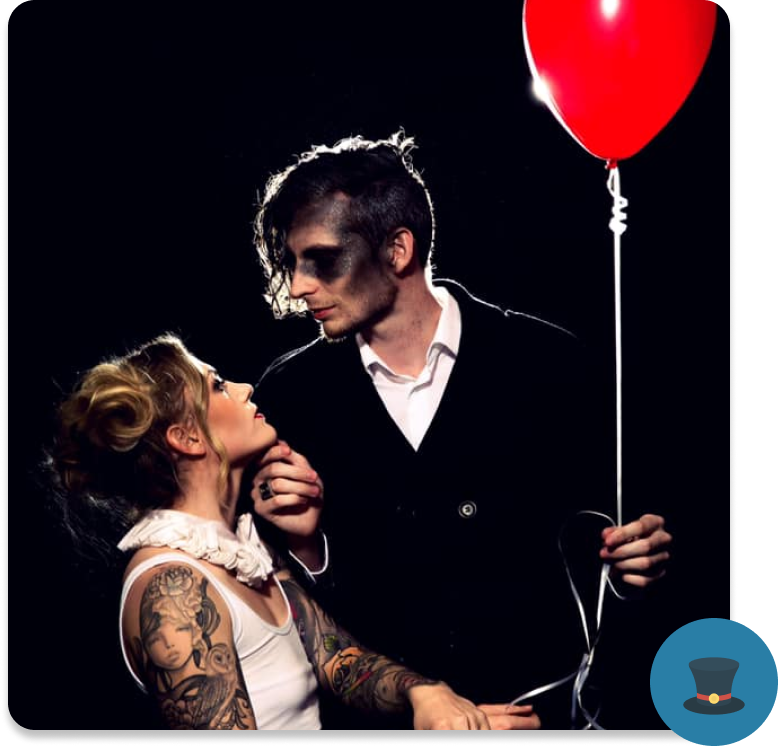
THEATRICAL CIRCUS
Traditional theatres are starting to involve circus in their productions. From a fire show at a Christmas pantomime to a flying Peter Pan, circus is in more places than one might suspect.
ROVING CIRCUS
A roving performer travels around an event interacting with the people around them. The may go to events like symposiums, festivals, malls, community centres, parties, sporting events and the list goes on.
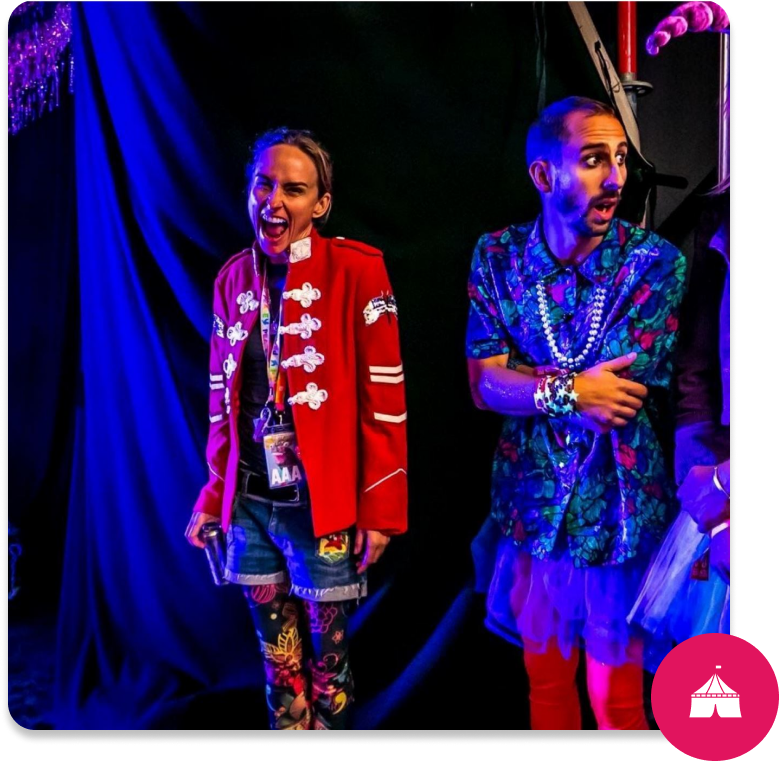
STREET CIRCUS
Street performers often perform in the centre of cities on a ‘pitch’ that is an area designated for performers. They need to draw a crowd, keep them engaged and hopefully get a good ‘hat’ or payment offered from the public. Here is Kozo Komatsubara working his magic on the streets of Sydney, Australia.
Education Pathways
CIRCUS IN THE CLASSROOM
Schoolroom teachers can find circus a useful tool for a wide variety of situation. Michael Armstrong tells us how he uses circus to help with classroom management.
CIRCUS SCHOOLS
There are circus schools across the country, from small community spaces to large organisations with established training facilities. In these spaces you would be likely to find teachers of childrens and adult classes alike. Here are some words from Julia Bromley an established circus tutor in Pōneke/Wellinngton.
POLE AND AERIAL STUDIOS
Aerial disciplines can often be found in specialized studios all around the country. Check out our circus map to find a studio near you.
COMMUNITY CIRCUS EDUCATION
There are many roles circus practitioners take around the country to use circus as a medium to bring community together, build confidence, have fun and grow. Some examples of these roles could include social circus facilitators, youth workers and special needs tutors. Introducing you to Ayden Jacobs who has spent much time working in this space
CIRCUS WORKSHOPS
Circus teaching is also often brought into other environments like schools, festivals, parties and events. Have-a-go workshops are a common event and a lot of fun to bring into a space. These are often offered from circus companies and schools alike.
ONLINE CIRCUS WORKSHOPS
In our small country it can be hard sometimes to find trainers in narrow, high level or very specific skills, however around the world there are many trainers who offer online classes. These often incorporate video discussions, recordings and collections of online videos and written resources. Here is an example of online privates that Nic Davies receive from Rosita Hendry when she is out of the country.


